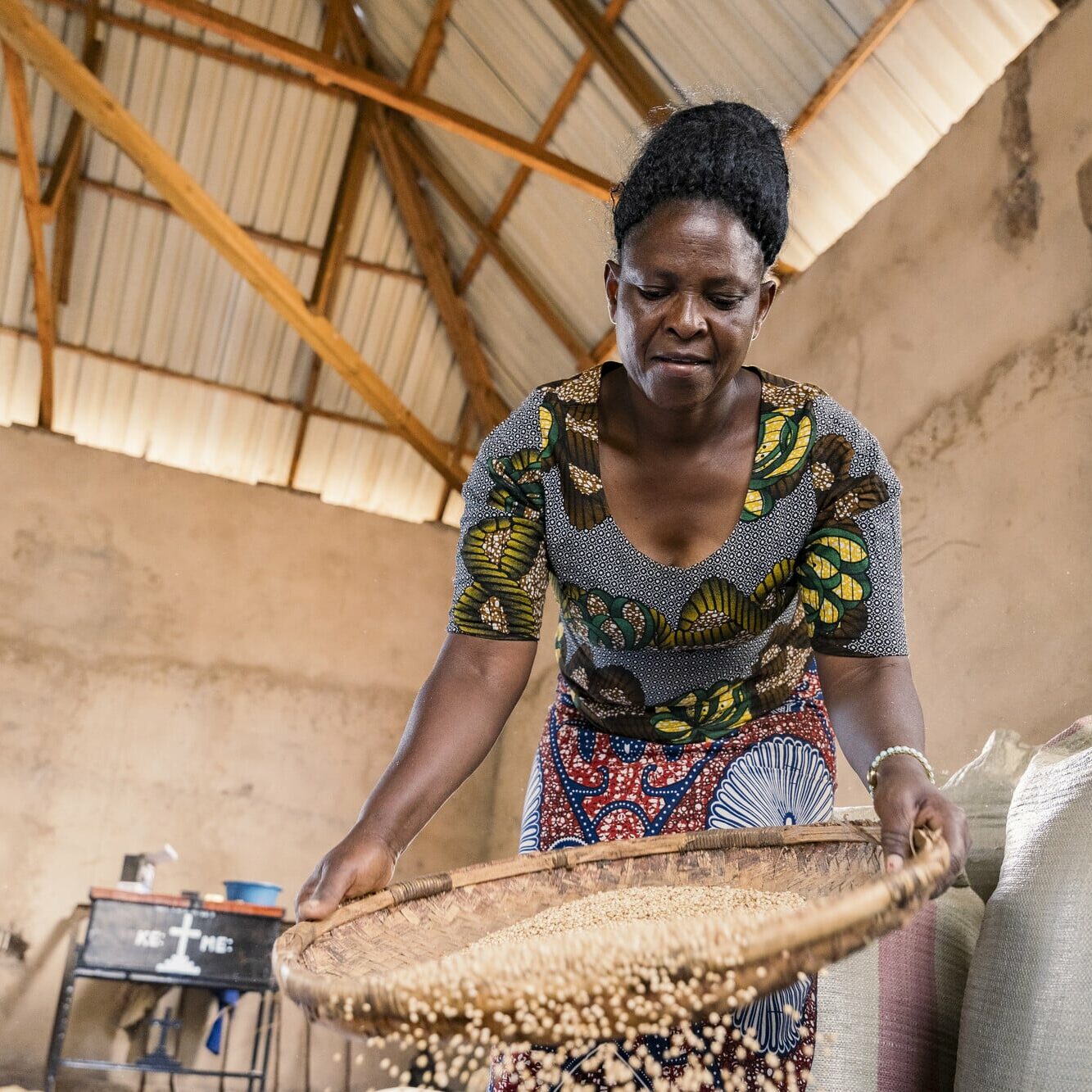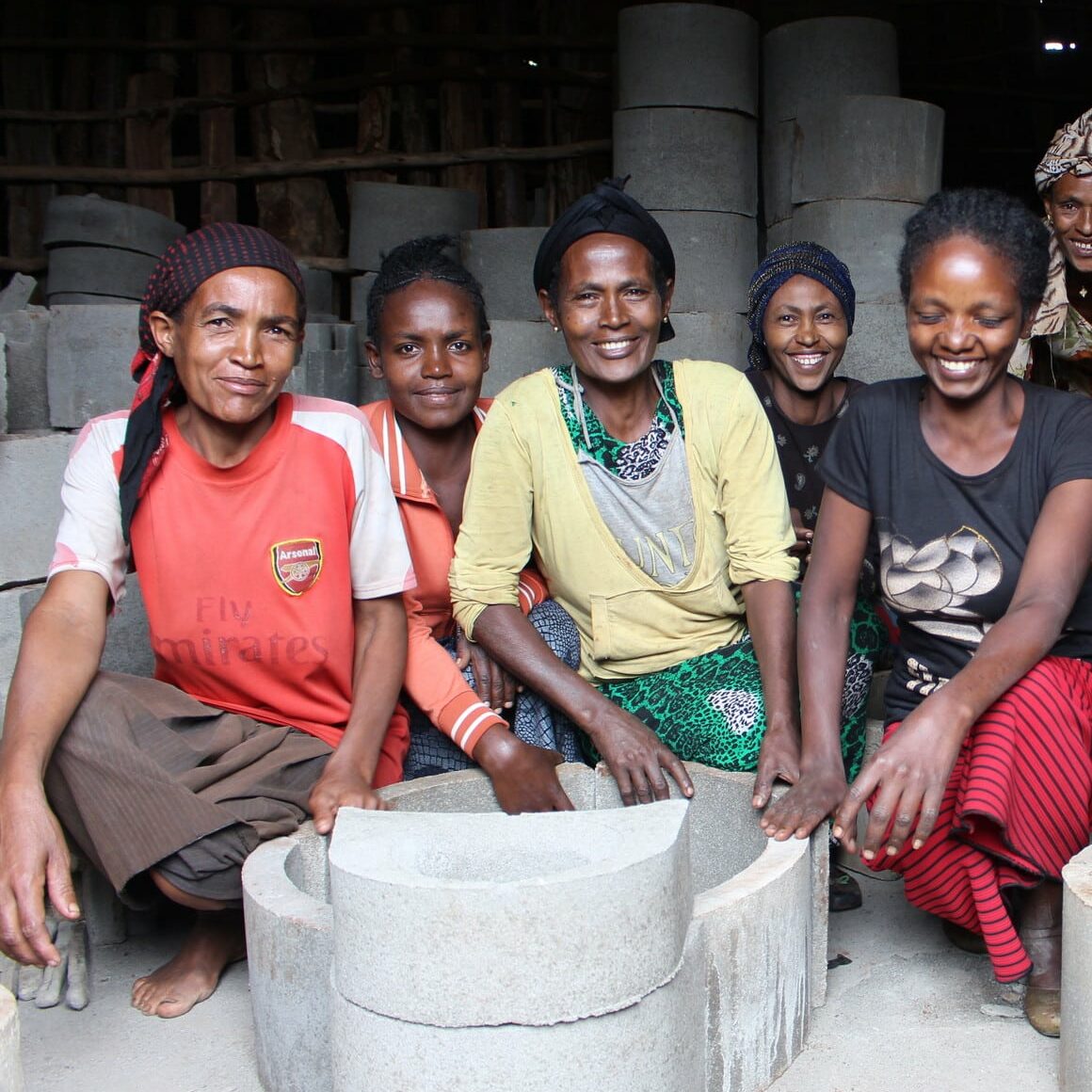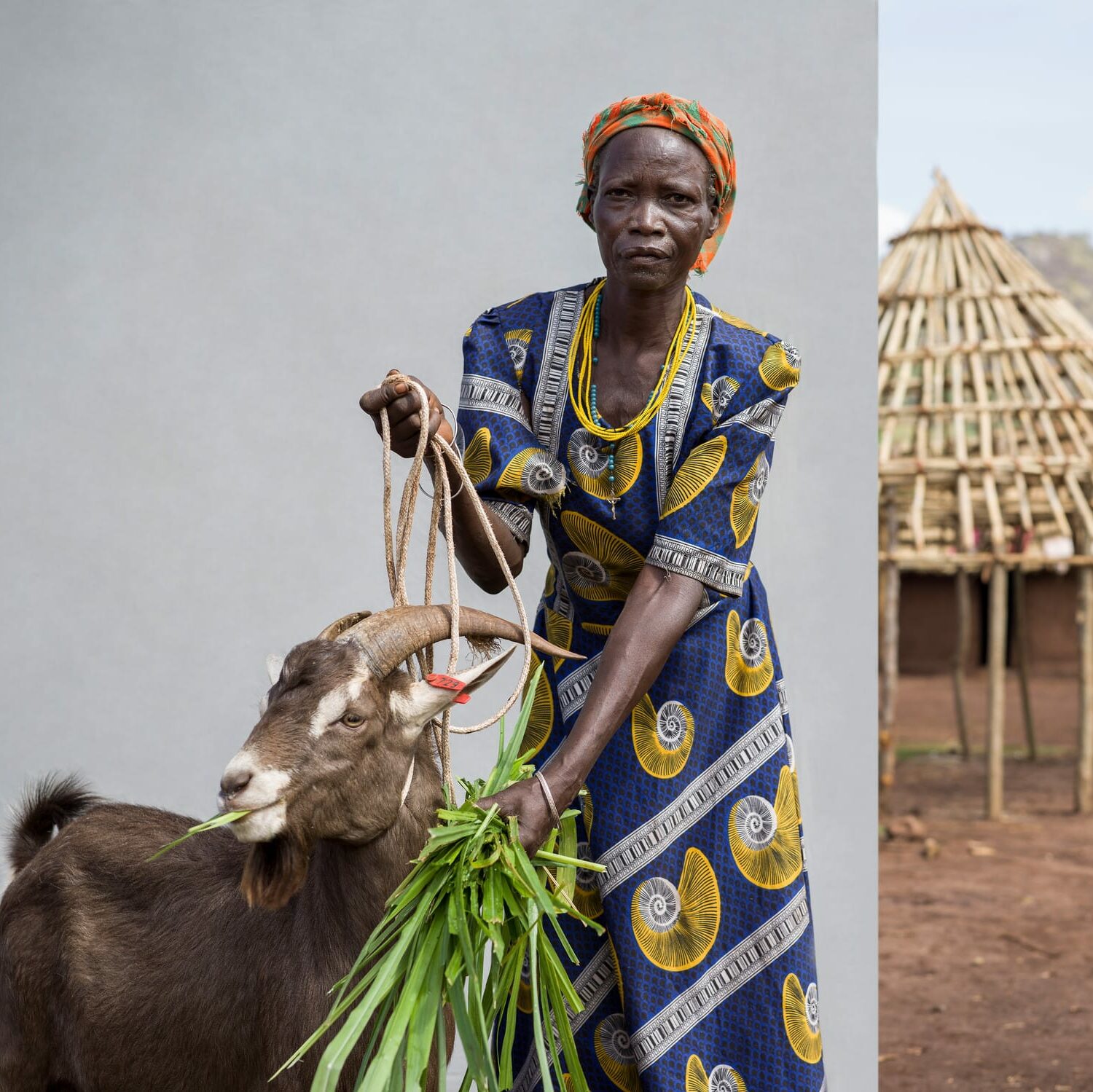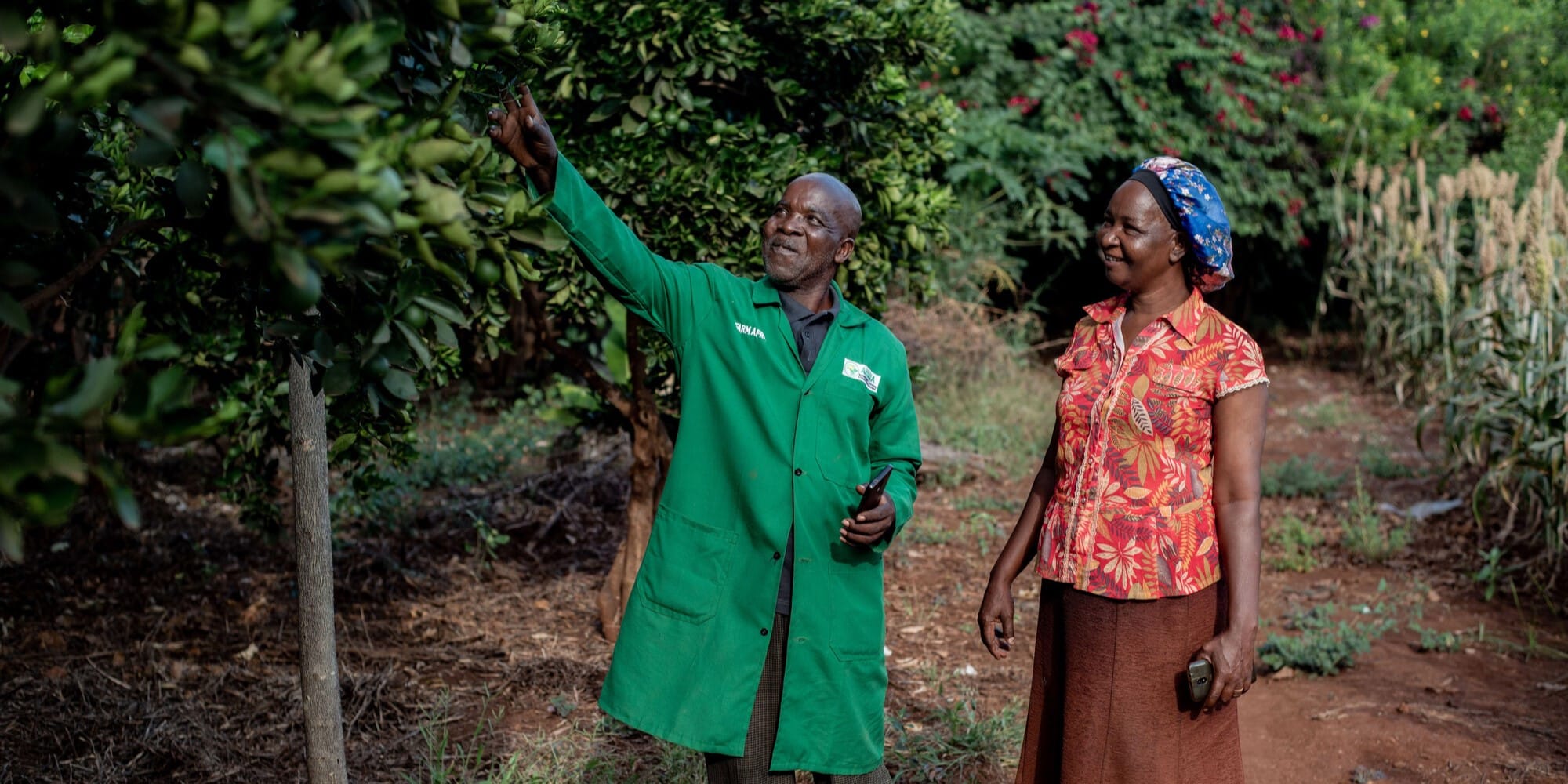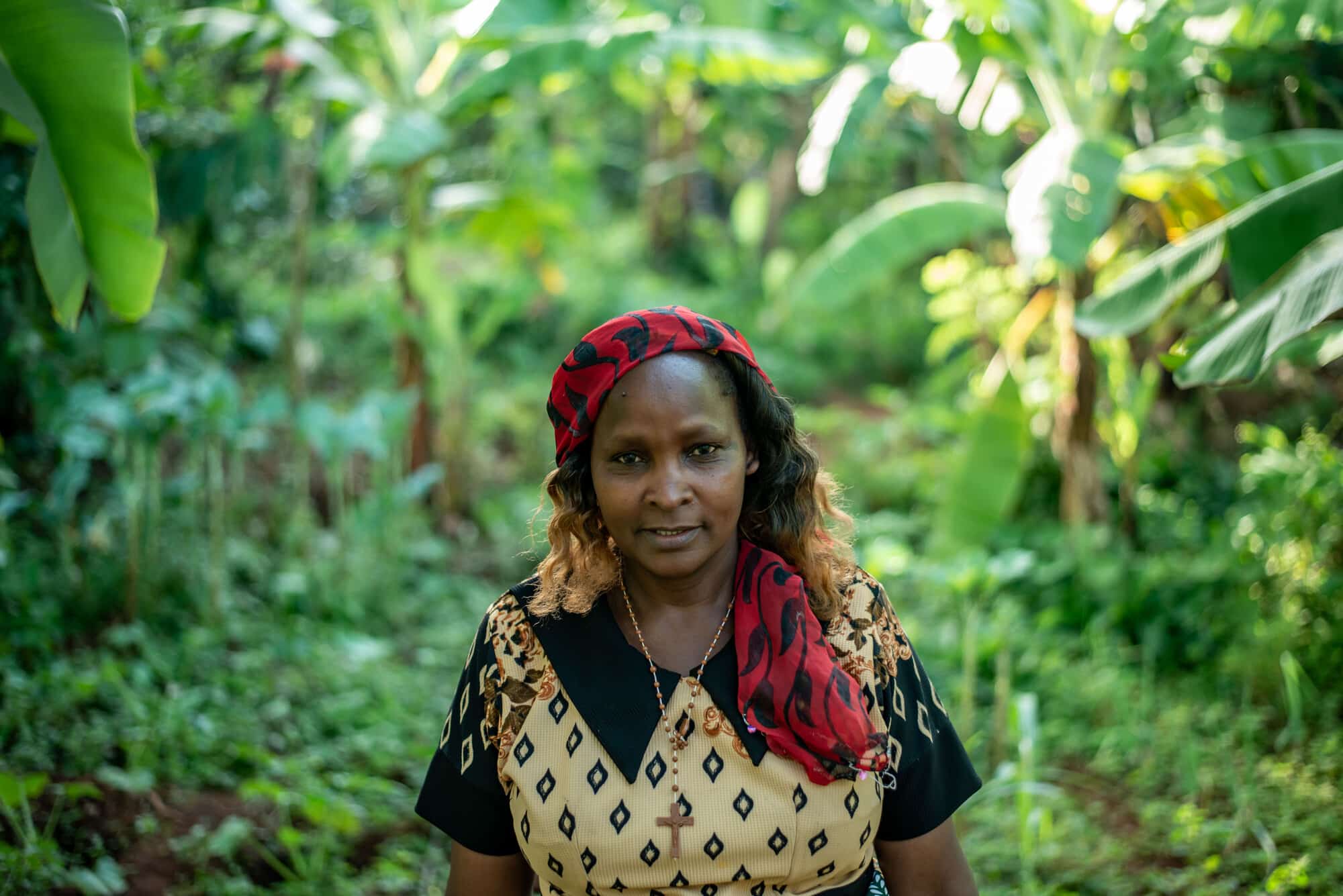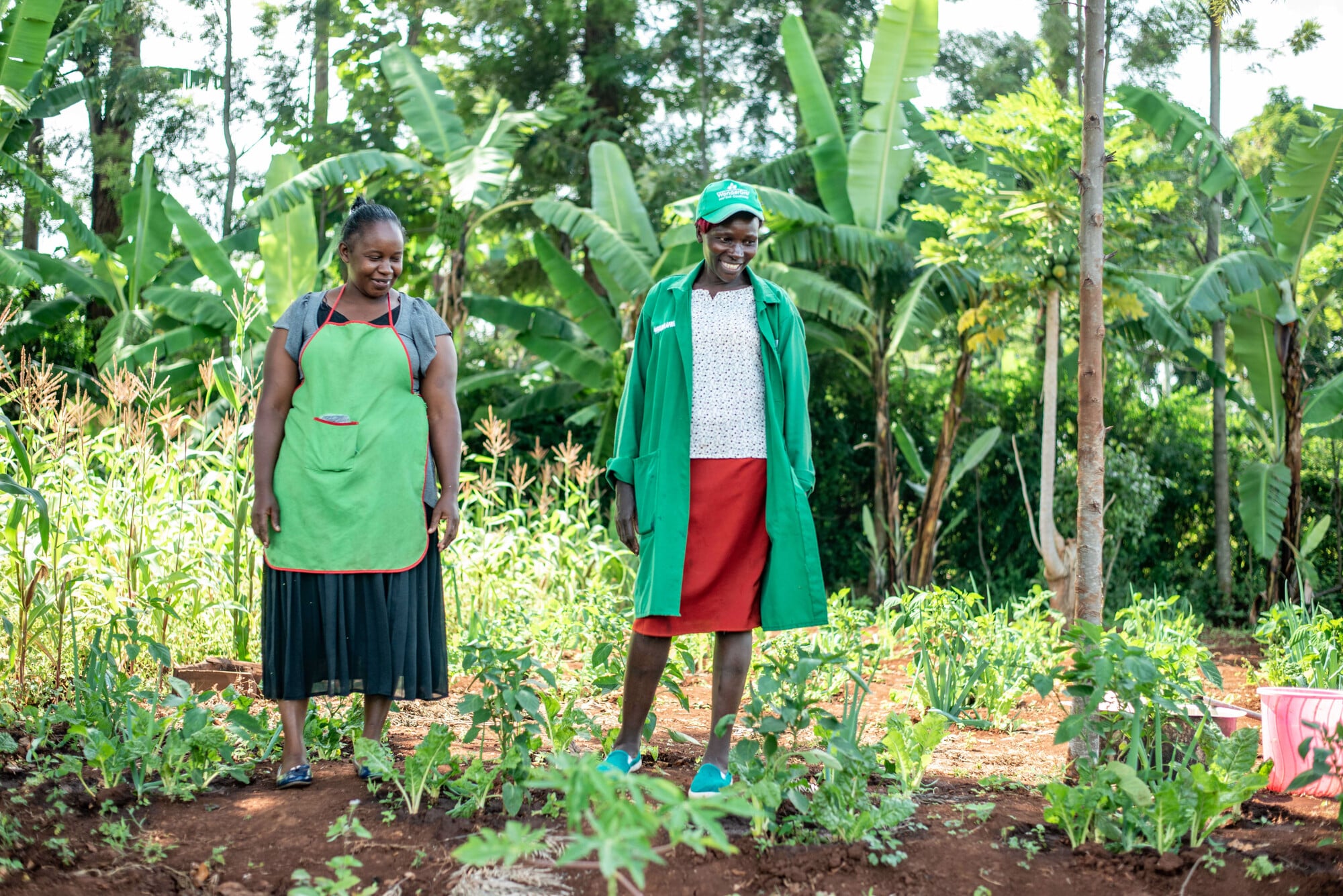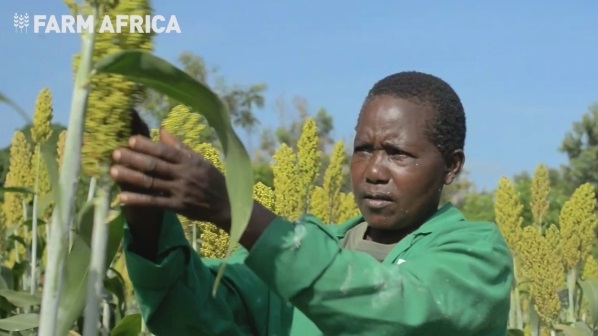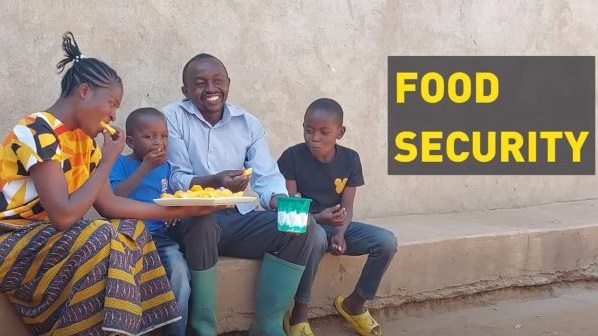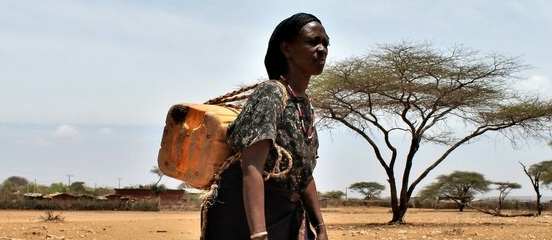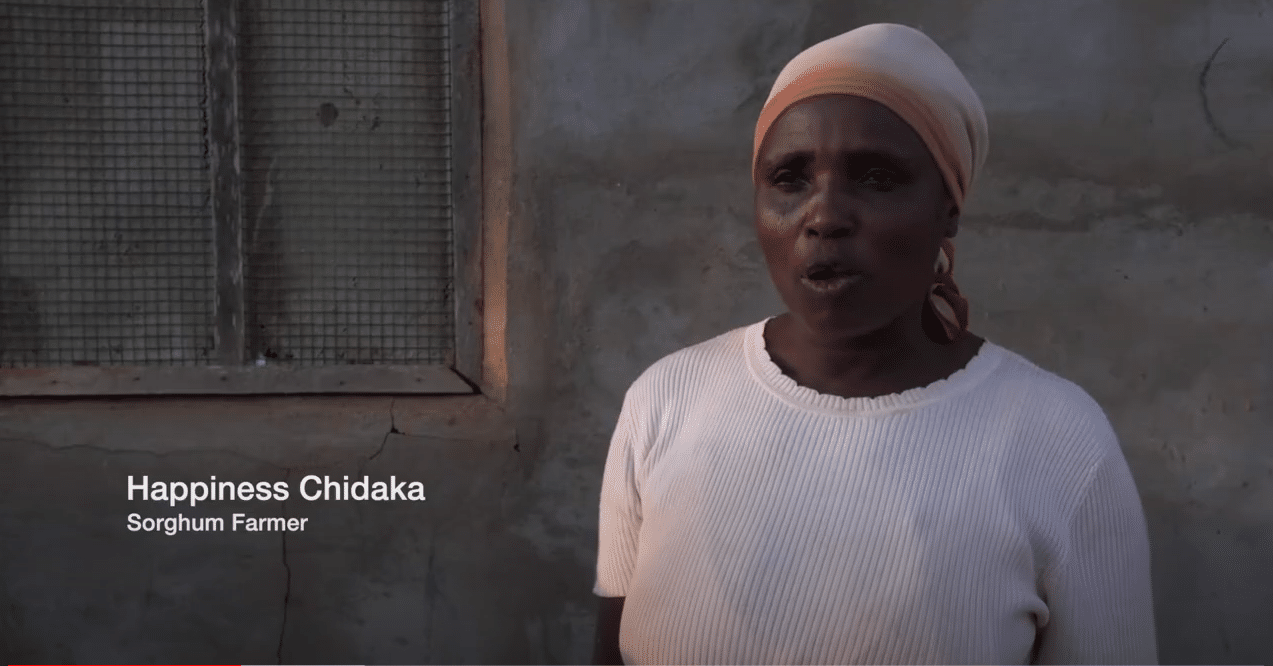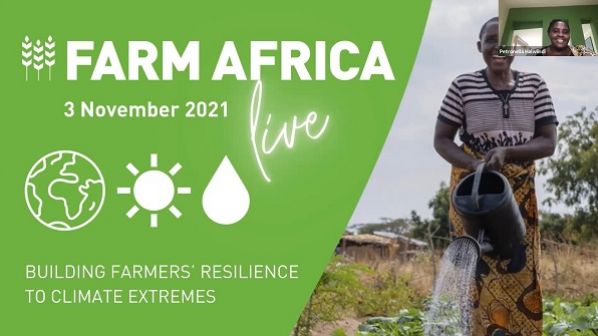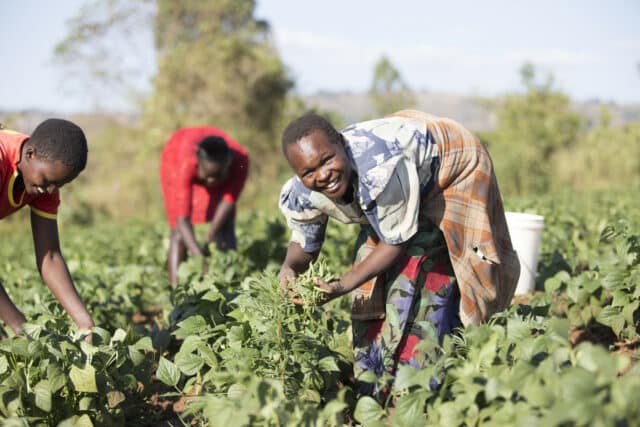The problem
Small-scale farmers, who often rely on rain-fed agriculture, are bearing the brunt of the climate crisis, with very little support to adapt to climate extremes.
Increased temperatures, reduced rainfall and more frequent extreme weather events are reducing small-scale farmers’ yields, incomes and food security.
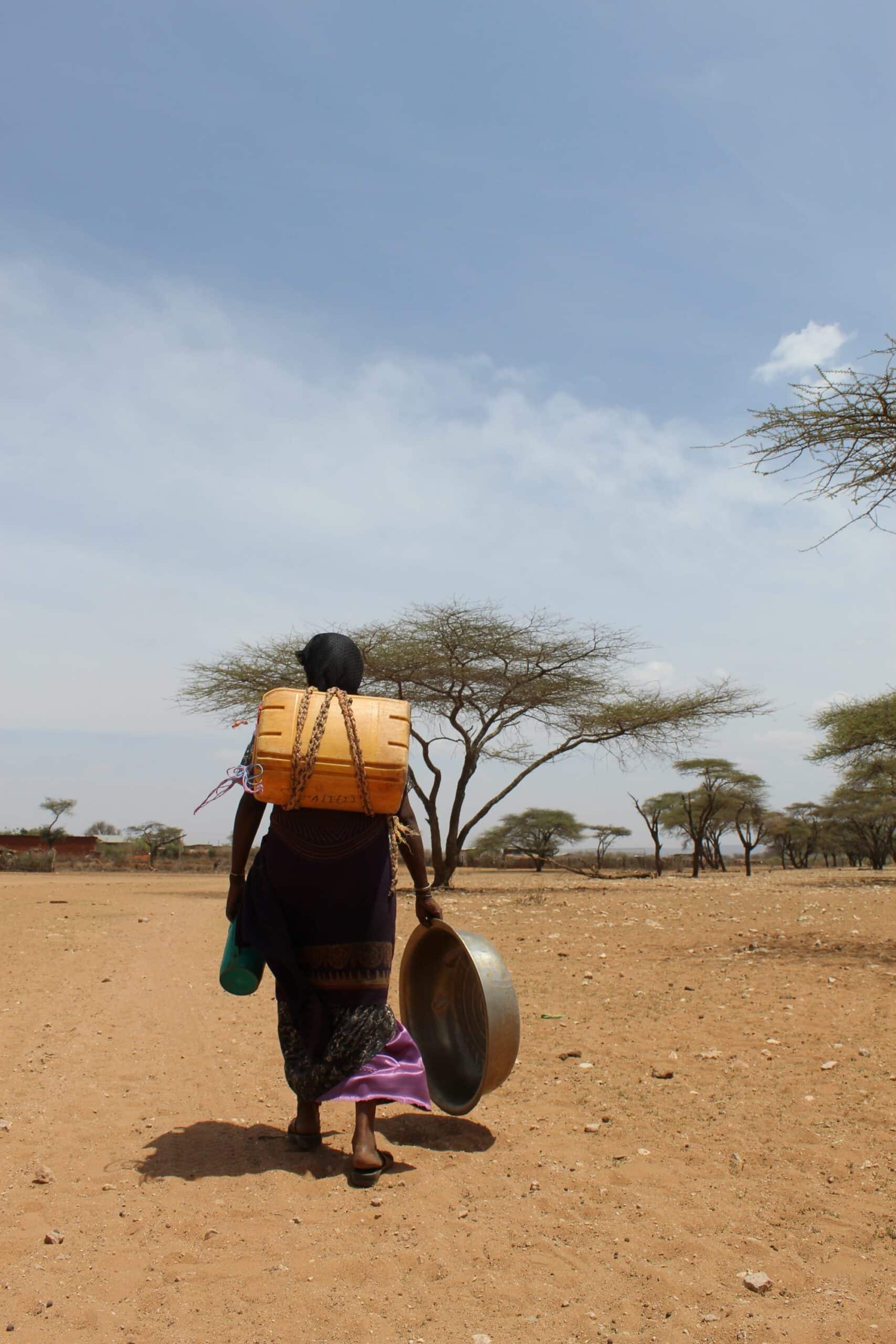
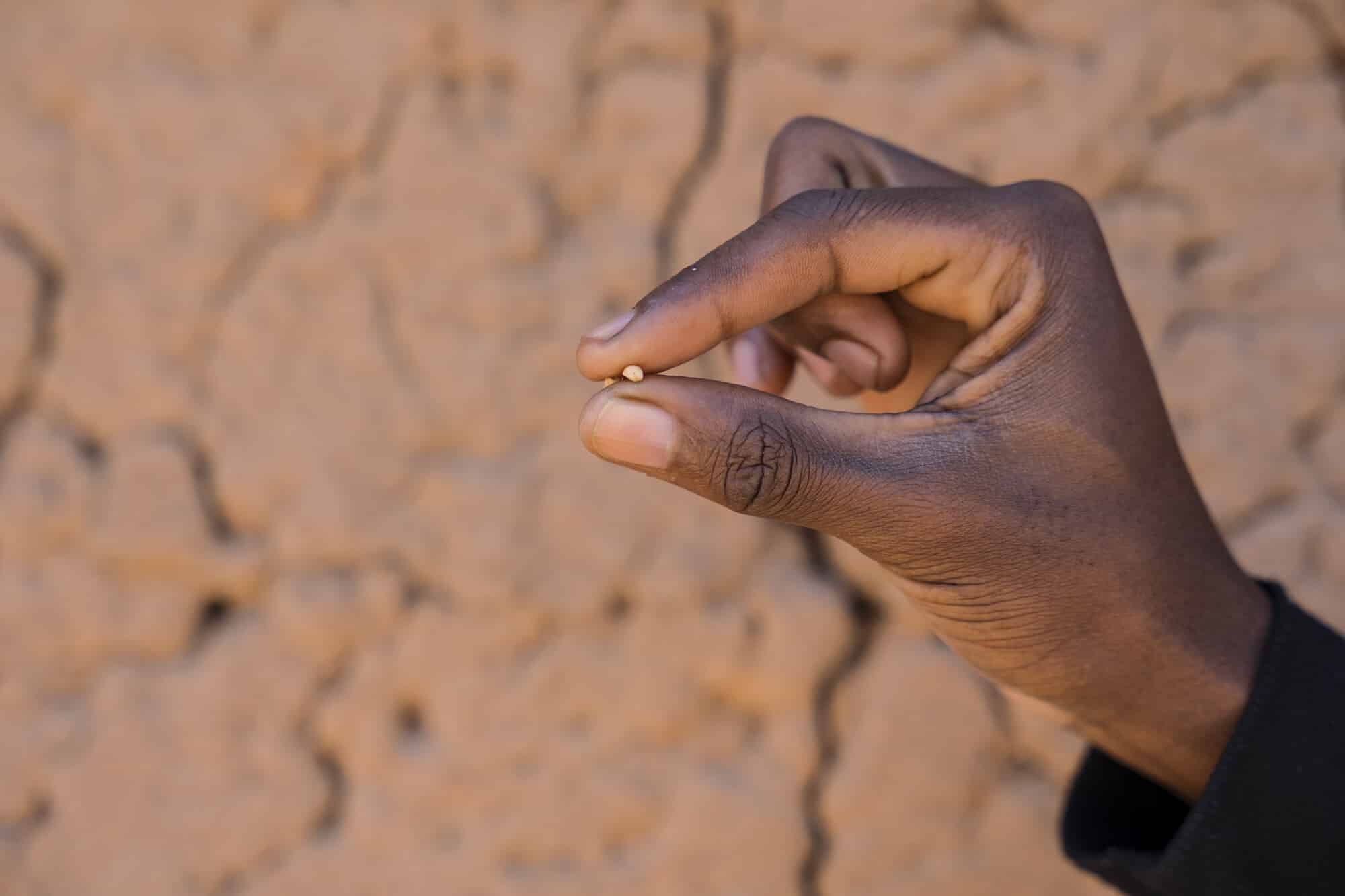
Many small-scale farmers have limited knowledge on climate-smart agricultural practices and lack access to the high-quality inputs, such as seeds for drought-tolerant crops, they need to adapt to climate change.
Female farmers have the lowest access to resources and are the most vulnerable to climate change.
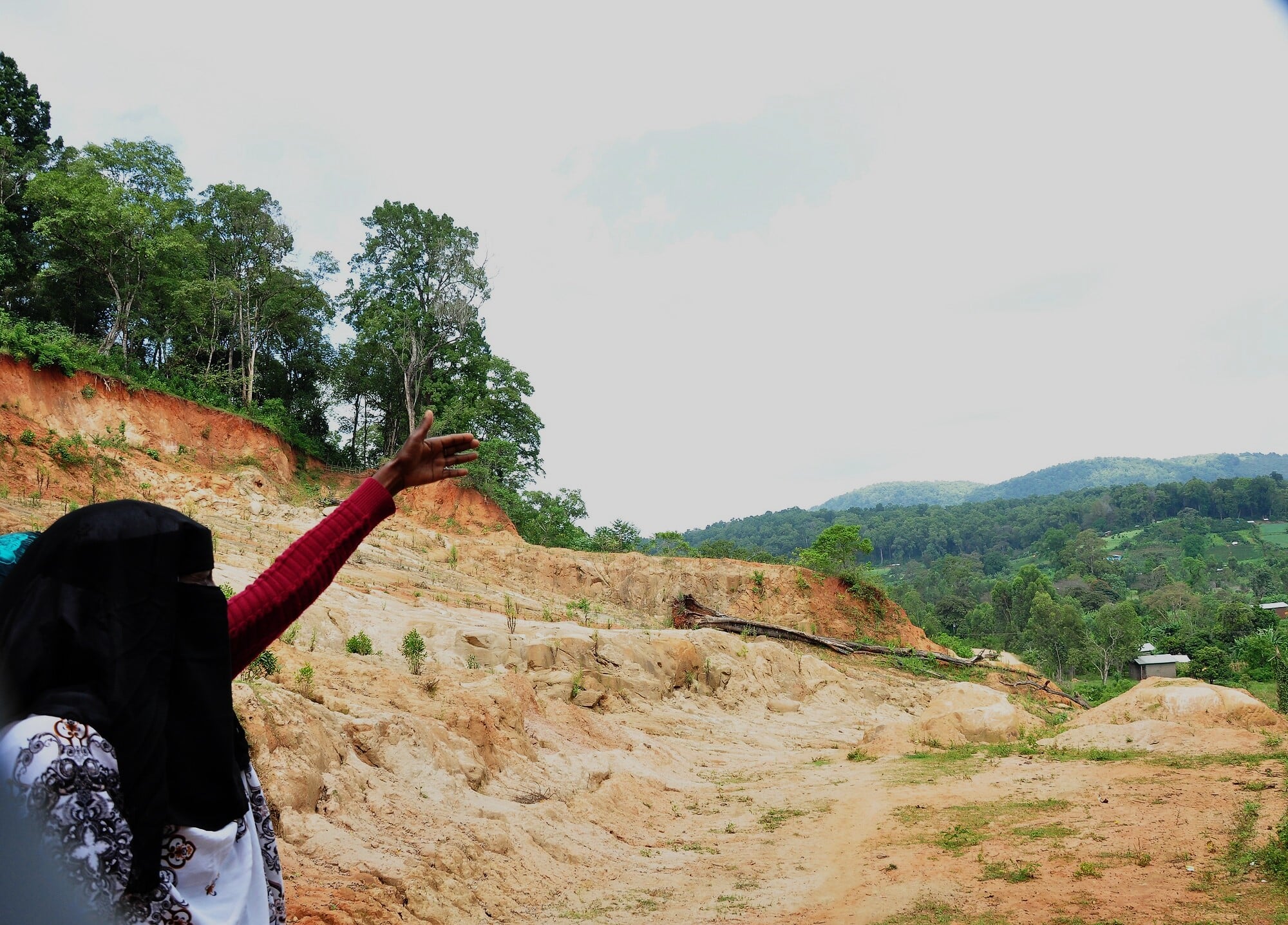
The opportunity
Farm Africa’s experience has shown that with access to the right inputs such as improved seeds, training on climate-smart agricultural practices, and access to finance and markets, farmers can increase yields by three times, and increase household incomes by 50% even in the face of climate change.
Increased productivity reduces the need to expand farming land, which reduces deforestation and therefore reduces carbon emissions. Meanwhile, improved post-harvest handling of crops reduces emissions from food loss.
Planting trees can draw down carbon from the atmosphere while building farms’ resilience to weather extremes.
Diversification is important to reducing vulnerability to climate extremes. Farmers rearing livestock as well as growing a range of crops have less chance of losing everything when droughts or floods hit.
Rearing livestock such as goats and camels, which are more resilient to drought, ensures pastoralists and agro-pastoralists sustain their livelihoods in the face of climate change.
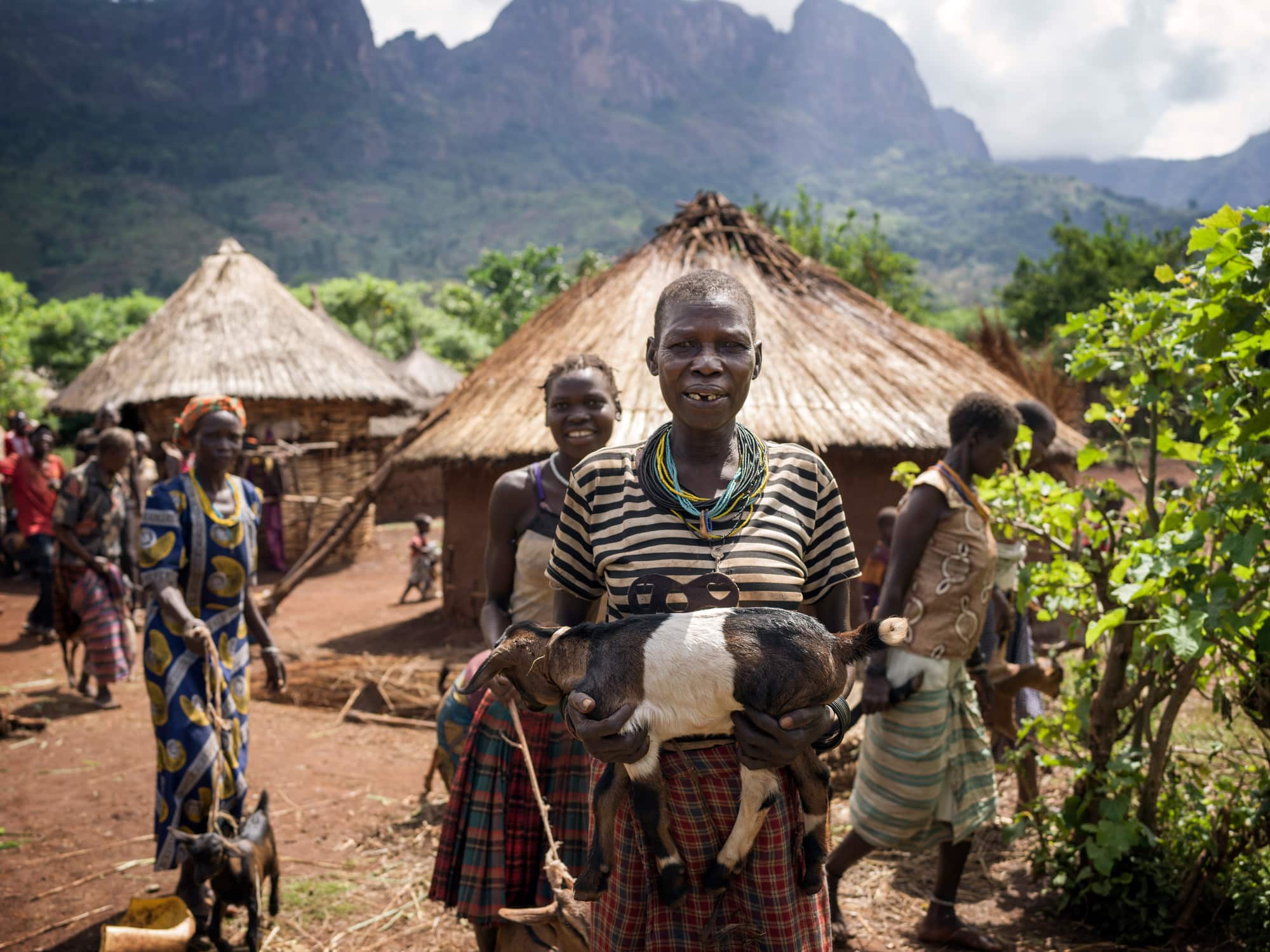
The outcome
When rural communities adopt climate-smart agricultural practices, it not only reduces poverty and food insecurity, but helps to mitigate carbon emissions through increased carbon sequestration.
This is an important consideration given that food systems account for a third of total man-made greenhouse gas emissions heating up our planet.
Investment in climate-smart agriculture also empowers farmers to protect and restore biodiversity and sustainably manage watersheds.
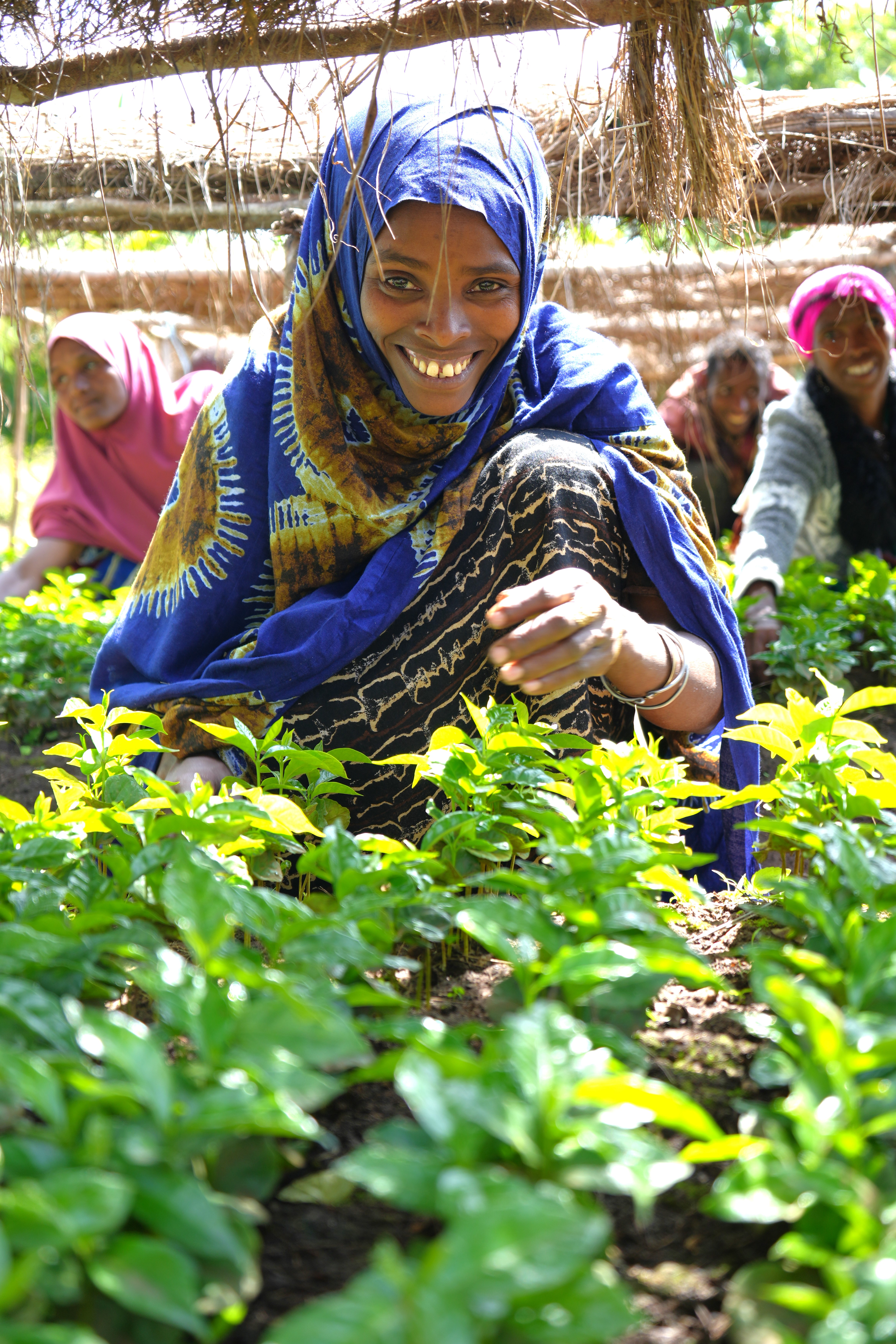
How we act on climate change
Farm Africa supports rural communities in eastern Africa to adapt to climate extremes and to reduce agriculture’s contribution to climate change. Our support includes:
- Introducing regenerative agriculture practices such as using mulch and manure, minimum tillage, micro-dosing of fertilisers and intercropping, which improve soil health and retain moisture in the soil, enabling farmers to boost their yields.
- Improving storage and drying of crops to reduce food loss and waste.
- Expanding access to financial services so that farmers can access credit to invest in improved seeds and fertilisers needed to grow drought-tolerant crops.
- Helping farmers reduce their risk by diversifying the crops they grow; rearing livestock as well as growing crops; and setting up secondary non-farming businesses.
- Introducing agroforestry, meaning farmers plant trees alongside their crops, which improves soil fertility and removes carbon from the atmosphere.
- Supporting communities to switch to fuel-efficient cookstoves that burn less firewood.
- Establishing carbon credit schemes where communities earn additional income for planting trees or reducing deforestation.
- Working with drought-affected pastoralists to regenerate degraded rangelands.
- Helping forest-based communities to develop forest-friendly businesses so they can earn money from the sale of forest coffee or honey, while reducing deforestation.
- Targeting assistance to reach female farmers, who are most vulnerable to climate change.
- Promoting the rearing of drought resilient livestock like goats and camels
Watch
Related resources
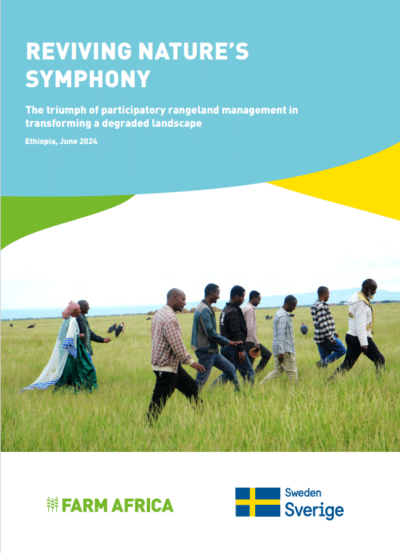
Reviving nature’s symphony: the triumph of participatory rangeland management in transforming a degraded landscape
More info
Country
Ethiopia
Key focus areas
Act on climate change
Increase food security and nutrition
Protect ecosystems
Reviving nature’s symphony: the triumph of participatory rangeland management in transforming a degraded landscape
This case story describes the success achieved by a community rangeland management cooperative in restoring degraded grasslands at Ethiopia’s Abijatta-Shalla National Park in the Great Rift Valley. The rapid transformation showcases what can be achieved by combining innovative techniques, collaborative effort and community engagement.
Download (1.95mb)

Country
Ethiopia
Key focus areas
Act on climate change
Increase food security and nutrition
Protect ecosystems
Country
Kenya
Key focus areas
Act on climate change
Boost productivity
Increase food security and nutrition
Regenerative agriculture factsheet
A comprehensive overview of Farm Africa’s Regenerative Agriculture project in Embu and Tharaka-Nithi counties in Kenya, funded by the IKEA Foundation through AGRA.
Download (2.84mb)
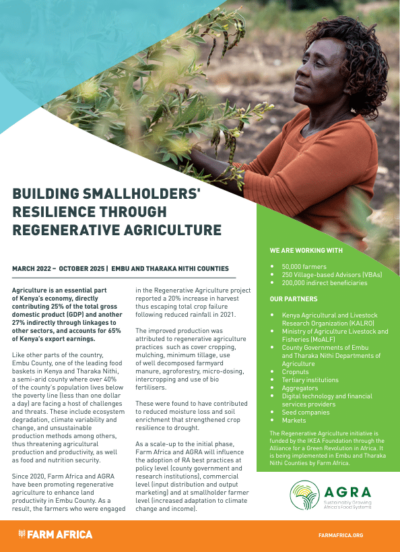
Country
Kenya
Key focus areas
Act on climate change
Boost productivity
Increase food security and nutrition
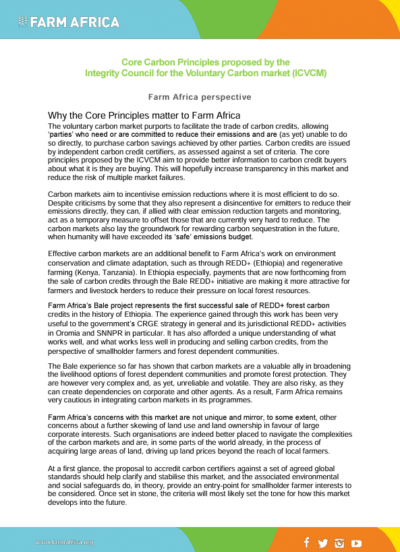
Farm Africa response to the Core Carbon Principles proposed by the Integrity Council for the Voluntary Carbon Market (ICVCM)
More info
Country
DR Congo
Key focus areas
Act on climate change
Increase incomes
Protect ecosystems
Farm Africa response to the Core Carbon Principles proposed by the Integrity Council for the Voluntary Carbon Market (ICVCM)
This PDF is the response Farm Africa submitted in September 2022 to a public consultation on the draft Core Carbon Principles (CCPs) and Assessment Framework (AF) being developed by the Integrity Council for the Voluntary Carbon Market (ICVCM)’s Expert Panel. The CCPs and AF will set new threshold standards for high-quality carbon credits, provide guidance on how to apply the CCPs, and define which carbon-crediting programmes and methodology types are CCP-eligible. The Core Carbon Principles and Assessment Framework will be issued in Q4 2022, following the public consultation, which launched in July 2022.
Download (606.24kb)

Country
DR Congo
Key focus areas
Act on climate change
Increase incomes
Protect ecosystems
Country
Tanzania
Key focus areas
Act on climate change
Boost productivity
Connect farmers to markets
Tanzania sunflower market assessment 2022
A report on the state of Tanzania’s sunflower market and recommendations for smallholder farmers to increase their yields.
Download (1.12mb)
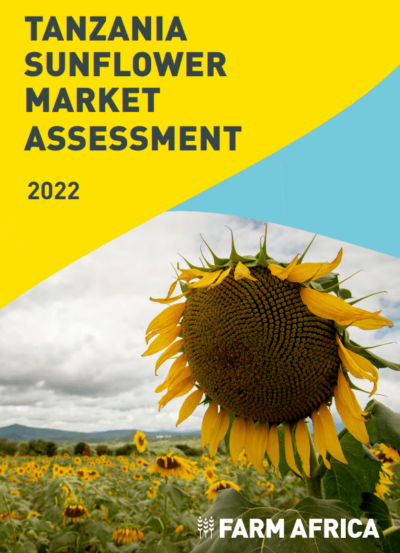
Country
Tanzania
Key focus areas
Act on climate change
Boost productivity
Connect farmers to markets
Country
Ethiopia
Key focus areas
Act on climate change
Increase incomes
Protect ecosystems
Livelihoods for Refugees and Host Communities
The project brought refugees and Ethiopian hosts together to address common challenges: environmental degradation, climate change and poverty. The Ethiopian Government provided host and refugee communities with access to previously unused land.
Download (6.07mb)
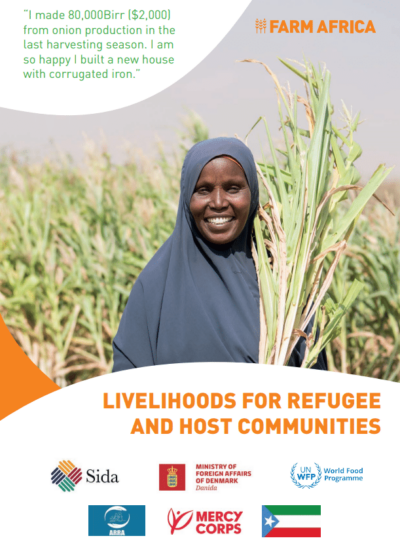
Country
Ethiopia
Key focus areas
Act on climate change
Increase incomes
Protect ecosystems
Country
Ethiopia
Key focus areas
Act on climate change
Increase incomes
Protect ecosystems
Forests for sustainable development factsheet
Factsheet on Forests for sustainable development programme, which aims to contribute to the sustainable conservation of natural forests, biodiversity and ecosystem services in the Bale Eco-region and associated landscapes in Guji and Borena zones in Oromia, Ethiopia through interventions that reduce deforestation and biodiversity loss, increase household incomes and resilience of the local community, and improve governance for integrated landscape management.
Download (673.28kb)

Country
Ethiopia
Key focus areas
Act on climate change
Increase incomes
Protect ecosystems
